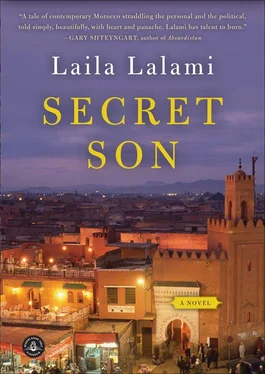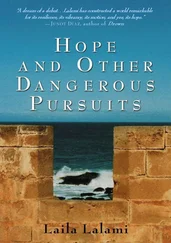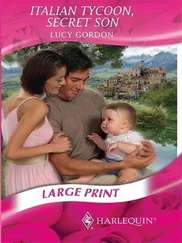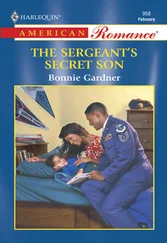“He divorced my mother when I was still a baby, and then disappeared from our lives. She told me he was dead so I wouldn’t ask her questions about him or ask to see him. And I believed her.”
“How did you find out?”
“I could tell she was hiding something, so I asked her.”
Amin looked confused. “But why is it a secret? You’re not the only one around here whose parents have divorced.”
Youssef had to think quickly. “I thought, well, everyone here thinks my father died, so there’s no point in saying he’s alive. It’s not as if it makes any difference in my life.”
“So where is he now?”
“He’s here, in Casablanca. He has a business.”
“Aw? Really? He’s got money?”
Youssef shrugged. “I guess so.”
“I can’t believe …” Amin’s voice trailed off. “And he never came to see you? Or paid his due?”
Even though he had divulged only a small part of the story, Youssef felt some relief already. “But please,” he said, “don’t tell anyone.”
“Of course not. You’re one of us.”
There was comfort in those words, in hearing someone say that he belonged. “Don’t tell anyone,” Youssef repeated. “Not even Maati.”
“Don’t worry, I won’t,” Amin said. He popped another walnut into his mouth and then switched subjects, going back to Soraya and where he might be taking her in order to have some privacy. Youssef listened distractedly. He kept thinking of his foolish attempt to join the protestors. It was so hard to keep the loneliness at bay, but harder still to keep his mother’s secret shuttered inside him.

The smell of trash from the heap at the corner wafted through the air. Along the narrow street, many doors were ajar, letting out the sounds of TV sets, each one tuned to a different satellite channel, each blaring news in a language of its own. Youssef came to a bend in the road and then made his way up the hill, occasionally ducking under half-empty laundry lines. He stood aside to let pass a group of women bringing a bride from the hammam. The women let out their joy cries and clapped in rhythm to a bridal song. Life goes on, he thought, and no one cares what happens to anyone else. No sooner had he come through the door than his mother asked, “Were you in the strike?”
“No,” he said, waving his hand as though the strike were none of his concern. He sat down on the divan and cautiously reclined against the cushions. “I left when it started.”
His mother was sitting cross-legged on the floor, piling couscous into a mound on a large plate. “And you didn’t see anything?”
“Not much.”
She looked at him searchingly, but he held her gaze. Using a small spoon, she drew ribbons of sugar and cinnamon across the couscous mound. “We had several boys turn up at the hospital,” she said. “I feel sorry for their mothers.”
Youssef tried to think of a suitable response to this but came up with nothing. He did not know what it was like to be a mother, only what it was like to have one. Any sorrow he felt was for the other students, who, like him, had thought they were speaking up against unfair price hikes. His mother did not seem to have expected an answer from him; she was quietly pouring buttermilk into bowls. He got up to wash his hands before the meal.
“The police were there,” she said, “asking those kids some questions.”
Youssef felt a cold shiver travel down his spine. “Did they arrest anyone?”
“I don’t know. One of the boys’ fathers showed up and made a scene, threatening to call his brother in the Royal Armed Forces. So they backed down.”
“That’s good,” he said. He spooned some couscous into his bowl of buttermilk.
“But they took down everyone’s names and ID card numbers. Now, even though they weren’t arrested, they’ll be in the system.”
Why was she telling him this? Was she warning him? Or was she just filling up the emptiness between them with idle chatter? He tasted the seffa. The buttermilk had coated the warm couscous and cooled it off. He let the combination linger in his mouth, tasting the sugar and cinnamon before swallowing. He was desperate to change the subject. “I saw Zohra, the teacher’s daughter, on her way back from the hammam.”
“Yes, she’s getting married tomorrow, insha’llah.”
“To whom?” he asked, though he knew the answer.
“A bus driver,” she said, taking another mouthful of couscous. “That’s what Maati’s mother told me.”
“You’re not going to the henna ceremony tonight?”
“No.”
She was trying not to show that she was upset by the snub, but perversely he persisted. “Why not?”
“They didn’t invite me.”
The neighbor women could be cruel, he thought, always making sure his mother knew her place inside their circle. He felt ashamed for having pressed her. “Those neighbors are cheap. They’re not inviting anyone,” he said, giving her this excuse the way he might put balm on a wound. “It’s a small wedding, that’s all.” And as the words parted from his lips, he realized he was helping her save face as much as he was saving his own.

The next day, a Saturday, Youssef went to the Oasis to meet Amin. They took a table in the back, directly across from the TV screen. The Widad was playing against the FAR, and although the local boys had started out strong, their striker fouled and two of their defenders did not seem to know how to communicate. By halftime, it was clear that they would lose.
“FAR will win,” Amin said.
“Don’t they always?” Youssef said dejectedly.
Hatim came in, a newspaper tucked under his arm. “The article on the strike is out,” he said, a gummy smile broadening his face.
“So you’re a celebrity now,” Amin teased, nudging Youssef with his elbow.
“Careful,” Youssef said. His ribs were still painful.
Hatim pulled out a chair and sat down. “Look.” He laid At Tariq on the table, pushing aside the bottles of Coca-Cola, the sunflower seed shells, and Amin’s ashtray. On the front page, in bloodred letters, a headline screamed: STATE BRUTALITY CONTINUES. Under it, in smaller type: DEMONSTRATORS BEATEN; FIFTY ARRESTED. Below the titles, two pictures of Youssef with a thin black strip masking his eyes.
“What’s this?” Youssef said, sitting up. “You said my face wouldn’t be in the photo.”
“I took a lot of pictures,” Hatim said, “and this is the one At Tariq used. Don’t worry. Your eyes are completely covered. No one will know it’s you. Go on, read the article.”
Youssef swallowed. He gripped the paper and started reading the article, Amin looking over his shoulder:
The bus fare increase that was announced on Friday has already borne the fruits any casual analyst could have predicted. Student strikes took place on the campuses of Casablanca Aïn-Chok, Casablanca Ben-Msik, Rabat-Agdal, and Meknès, where hundreds of demonstrators marched to demand a repeal of the fare hike. Dozens of police officers in full riot gear came to quell the popular protests. They showed no mercy as they beat, brutalized, and in some cases tortured the students. One young man, a freshman in English (see photograph), suffered a concussion, two broken ribs, a back injury, and cuts and bruises to the rest of his body. “There was blood everywhere,” he told At Tariq Al Mustaqim in an exclusive interview, “and we do not feel safe coming to campus anymore.” Out-of-city students were chased back to their dorms, and reported that when the police were done searching their rooms, laptops, mobile phones, and other valuables had gone missing. The Party’s chairman, Mr. Lahlou, declared, “We vigorously protest the involvement of the police in peaceful campus demonstrations. The Moroccan state continues to repress the will of its people, but we will continue to fight for the restoration of truth and justice in this country. By God. Through God. With God.”
Читать дальше













